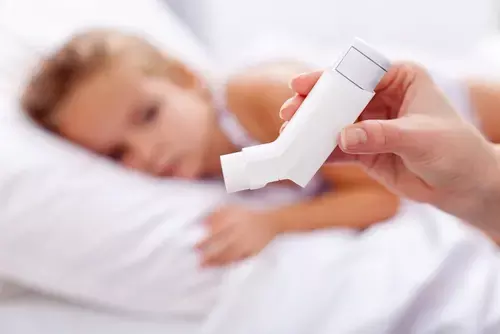- Home
- Medical news & Guidelines
- Anesthesiology
- Cardiology and CTVS
- Critical Care
- Dentistry
- Dermatology
- Diabetes and Endocrinology
- ENT
- Gastroenterology
- Medicine
- Nephrology
- Neurology
- Obstretics-Gynaecology
- Oncology
- Ophthalmology
- Orthopaedics
- Pediatrics-Neonatology
- Psychiatry
- Pulmonology
- Radiology
- Surgery
- Urology
- Laboratory Medicine
- Diet
- Nursing
- Paramedical
- Physiotherapy
- Health news
- Fact Check
- Bone Health Fact Check
- Brain Health Fact Check
- Cancer Related Fact Check
- Child Care Fact Check
- Dental and oral health fact check
- Diabetes and metabolic health fact check
- Diet and Nutrition Fact Check
- Eye and ENT Care Fact Check
- Fitness fact check
- Gut health fact check
- Heart health fact check
- Kidney health fact check
- Medical education fact check
- Men's health fact check
- Respiratory fact check
- Skin and hair care fact check
- Vaccine and Immunization fact check
- Women's health fact check
- AYUSH
- State News
- Andaman and Nicobar Islands
- Andhra Pradesh
- Arunachal Pradesh
- Assam
- Bihar
- Chandigarh
- Chattisgarh
- Dadra and Nagar Haveli
- Daman and Diu
- Delhi
- Goa
- Gujarat
- Haryana
- Himachal Pradesh
- Jammu & Kashmir
- Jharkhand
- Karnataka
- Kerala
- Ladakh
- Lakshadweep
- Madhya Pradesh
- Maharashtra
- Manipur
- Meghalaya
- Mizoram
- Nagaland
- Odisha
- Puducherry
- Punjab
- Rajasthan
- Sikkim
- Tamil Nadu
- Telangana
- Tripura
- Uttar Pradesh
- Uttrakhand
- West Bengal
- Medical Education
- Industry
Combination of probiotics can help reduce asthma exacerbations in children, says study

Italy: A combination of two probiotics may reduce asthma exacerbations in allergic children, particularly those with home dust mite allergies, says an article published in Annals of Allergy, Asthma & Immunology.
Asthma is often defined as a type 2 inflammation accompanied with a weakened type 1 immune response, which is in charge of combating infections. Children with asthma have dysbiosis in the stomach and airways, according to Ciprandi, and they are also prone to respiratory infections. Giorgio Ciprandi and colleagues predicted that because allergy is a major pathogenic component in asthma, children with allergies will benefit from probiotic therapy as well.
The PROPAM research comprised 164 allergic children, with a mean age of 8.8 years and a gender split of 60 girls and 104 (63.4 percent) males. However, 16 people did not fulfil the inclusion requirements and were not randomized for the double-blind allergy research, and three people were lost to follow-up, leaving 84 people in the placebo group and 80 people in the probiotic group. The supplementation period lasted four months. For 8 weeks, participants were given the probiotic combination or a placebo twice a day, once in the morning and once in the evening, and then once a day for another 8 weeks.
They key findings of this study were as follows:
1. The researchers discovered that children with allergies who got the probiotic combination had fewer asthma exacerbations, with improved results for those with home dust mite allergies.
2. Furthermore, utilizing these strains in probiotic supplements might decrease asthma exacerbations, lowering health-care expenses and drug side effects while increasing quality of life, according to the researchers.
3. Because many children with asthma have uncontrolled or inadequately managed asthma, and prior exacerbations are the primary risk factor for future asthma exacerbations, probiotics may be useful in avoiding them.
In conclusion, preschoolers, schoolchildren, and allergy participants were subjected to post-hoc analysis. All of these studies verified the beneficial benefits. Further research might look into the impact on asthma control and biomarkers.
Reference:
Ciprandi, G., Schiavetti, I., Cioffi, L., Pane, M., & Drago, L. (2022). The PRObiotics in Pediatric Asthma Management (PROPAM) study: a post-hoc analysis in allergic children. In Annals of Allergy, Asthma & Immunology. Elsevier BV. https://doi.org/10.1016/j.anai.2022.04.026
Medical Dialogues consists of a team of passionate medical/scientific writers, led by doctors and healthcare researchers. Our team efforts to bring you updated and timely news about the important happenings of the medical and healthcare sector. Our editorial team can be reached at editorial@medicaldialogues.in.
Dr Kamal Kant Kohli-MBBS, DTCD- a chest specialist with more than 30 years of practice and a flair for writing clinical articles, Dr Kamal Kant Kohli joined Medical Dialogues as a Chief Editor of Medical News. Besides writing articles, as an editor, he proofreads and verifies all the medical content published on Medical Dialogues including those coming from journals, studies,medical conferences,guidelines etc. Email: drkohli@medicaldialogues.in. Contact no. 011-43720751


